LAN Pretoria had the opportunity to host 23 Dutch companies in South Africa alongside the state visit of their Majesties, King Willem-Alexander and Queen Máxima, from October 16 to 20. This economic mission gave companies an opportunity to explore cooperation, learn from South African organizations, and discover new opportunities in future-proof agri- and horticulture. The 31 participants had a jam-packed and extensive week-long program that took them across the country from Tzaneen to Cape Town.
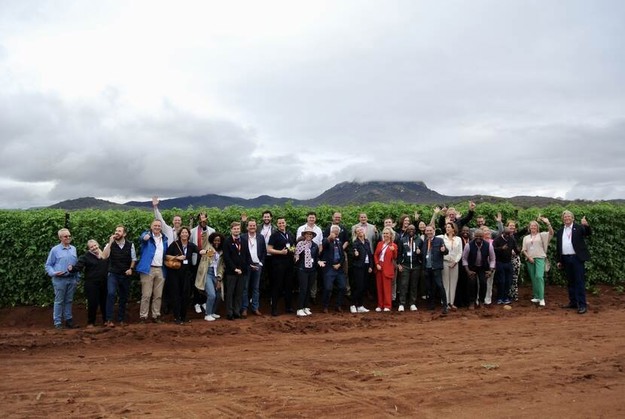
Goals
When preparing this mission and determining what would be most interesting and relevant to companies, LAN Pretoria defined several goals. These include:
- Sharing knowledge, ideas, and solutions between South African and Dutch companies and organizations.
- Identifying areas for partnerships and market opportunities.
- Providing a realistic understanding of South Africa’s business, socio-economic, and political environments, including challenges and opportunities.
- Learning more about nature-inclusive agriculture innovations, techniques, and policy context.
Program
The busy program included field visits, workshops, an Innovation Village, and Royal events. Kicking off with field visits in Tzaneen, companies had an opportunity to learn about innovations and approaches to nature-inclusive farming at two of the largest commercial farmers in South Africa. Touring the facilities, avocado, and tomato orchards, ZZ2 presented their Natuurboerdery philosophy to the companies. This is a unique nature-based approach to farming that they have practiced for more than 20 years after realizing their conventional farming practices were unsustainable. On the visit to Westfalia, one of the world’s largest producers of avocadoes, a discussion of the Orchard of the Future, a real-life laboratory for testing more sustainable ways of farming in a variety of areas (including water and pest management) provided insights into ideas around making the highly lucrative crop more sustainable. On the other end of the spectrum, companies visited a cooperative of emerging citrus farmers, Mariveni Farmers, who were able to present a different set of challenges compared to commercial farmers. This is a defining feature of South Africa’s agriculture sector, a developed and wealthy commercial side and a contrasting poorer side of emerging farmers.
In Gauteng, an early start led participants to the Johannesburg Fresh Market, where they witnessed first-hand the dynamism, hustle, and bustle of the early morning trading. This gave participants a better understanding of how these types of markets play a key role for growers and distributors in the city and the logistics involved in getting food to the table for many. After the market, companies were greeted at AG Horticulture by Minister Piet Adema. AG Horticulture is exploring options for more sustainable ways of farming but, for many years, has used Dutch greenhouse technology. Like most of the country’s energy, these greenhouses have been heated by coal in the past, and South African companies are actively exploring options to decarbonize.
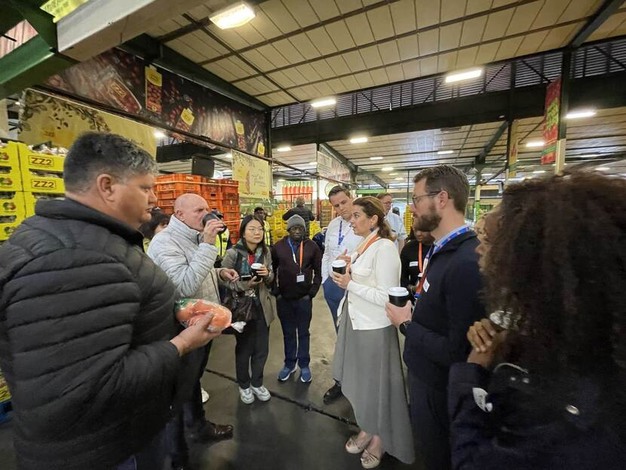
Minister Adema led the opening of the economic mission at the Innovation Village. The Innovation Village, an exhibition, allowed the three economic missions running parallel to the royal visit (green hydrogen, circular waste, future-proof agriculture, and the knowledge mission) to meet in one place, share knowledge, and network. Examples of successful Dutch-South African cooperation were also on display here. The Royal Couple attended, too, with Queen Máxima visiting a model greenhouse to learn about tailor-made greenhouses for the South African market and what makes them unique. The companies were able to see the real thing at the Stellenbosch Horti Demo Centre later on in the economic mission.
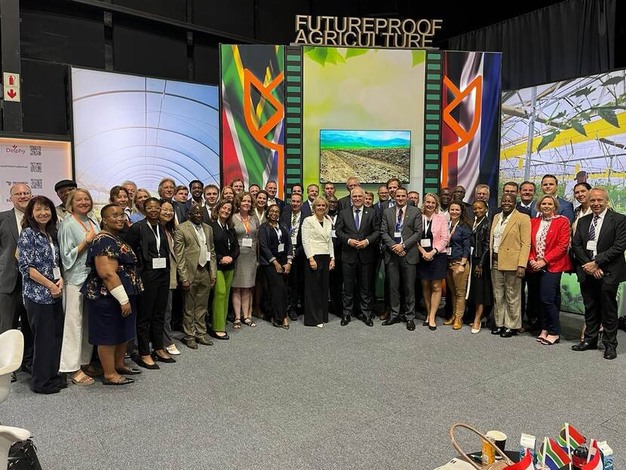
Sasol and Eskom are two important companies in South Africa. Both operate in the energy sector and hosted workshops for the companies. Sasol is a private company that manufactures petroleum products from coal, while Eskom, the country’s national electricity company, continues to produce the majority of its energy from coal power stations. Both organizations are exploring opportunities to decarbonize without leaving those dependent on coal for employment behind. These workshops took place in the Dipaleseng Local Municipality region, with DG Agro Guido Landheer taking part. Discussions and presentations focused on the Just Energy Transition (JET) and climate-smart horticulture. The JET is South Africa’s decarbonization plan, which aims to create opportunities so that those working in carbon-intensive sectors are not left unemployed, an important approach considering the country’s high unemployment. The Netherlands Embassy in South Africa has been actively supporting Eskom with its JET goals and creating alternative employment in the agriculture and horticulture sectors.
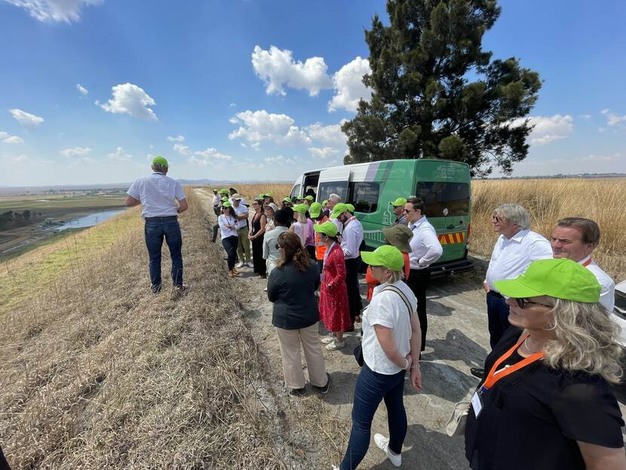
To wrap up the mission, companies visited Cape Town and the surrounding Winelands. Participants kicked off their time there with a breakfast and discussions on undercover farming that involved both the Western Cape Provincial Minister of Agriculture, Ivan Meyer, and Minister Adema. Following this, the Stellenbosch Horti Demo Centre, a flagship example of Dutch-South African cooperation, hosted an open day where participants could learn more about the unique features of South African greenhouses. Here, the center also presented the lessons learned from the Dutch-South African cooperation, ways to create income, research, and the learning taking place there. The center was opened exactly a year ago, and the positive response it has received is a good indication that these kinds of partnerships can be rolled out across the country.
The grape and wine industry is an important sector for the Western Cape and the country in general. It was, therefore, only appropriate for the mission to close with a visit to at organic wine farm, Longridge, where they could learn more about the sector, challenges, and opportunities.
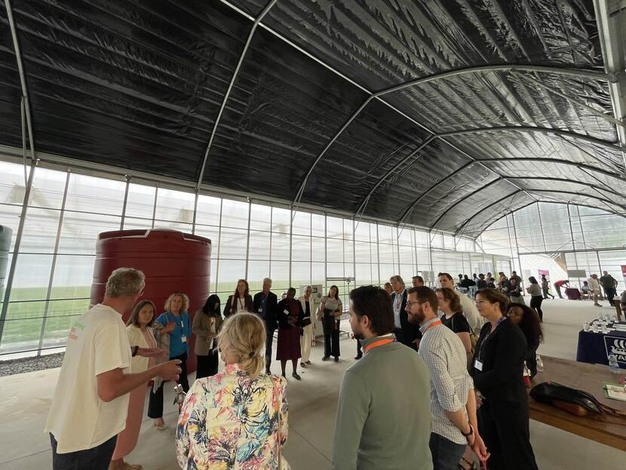
Outcomes
The mission featured a variety of participants across the agri- and horti-sectors, including private companies, knowledge institutes, and public sector bodies. Some companies had experience in South Africa, and others were visiting for the first time. The group showed a good mix of participants, with 16 women and 15 men.
Immediately after the mission, several companies indicated that they had concrete leads and would like to make contact with the local companies we visited. Others indicated that they had already planned follow-up visits. In general, companies provided positive feedback on the mission, and the field visits were a highlight for most participants, being interesting and relevant.
Source: agroberichtenbuitenland.nl
